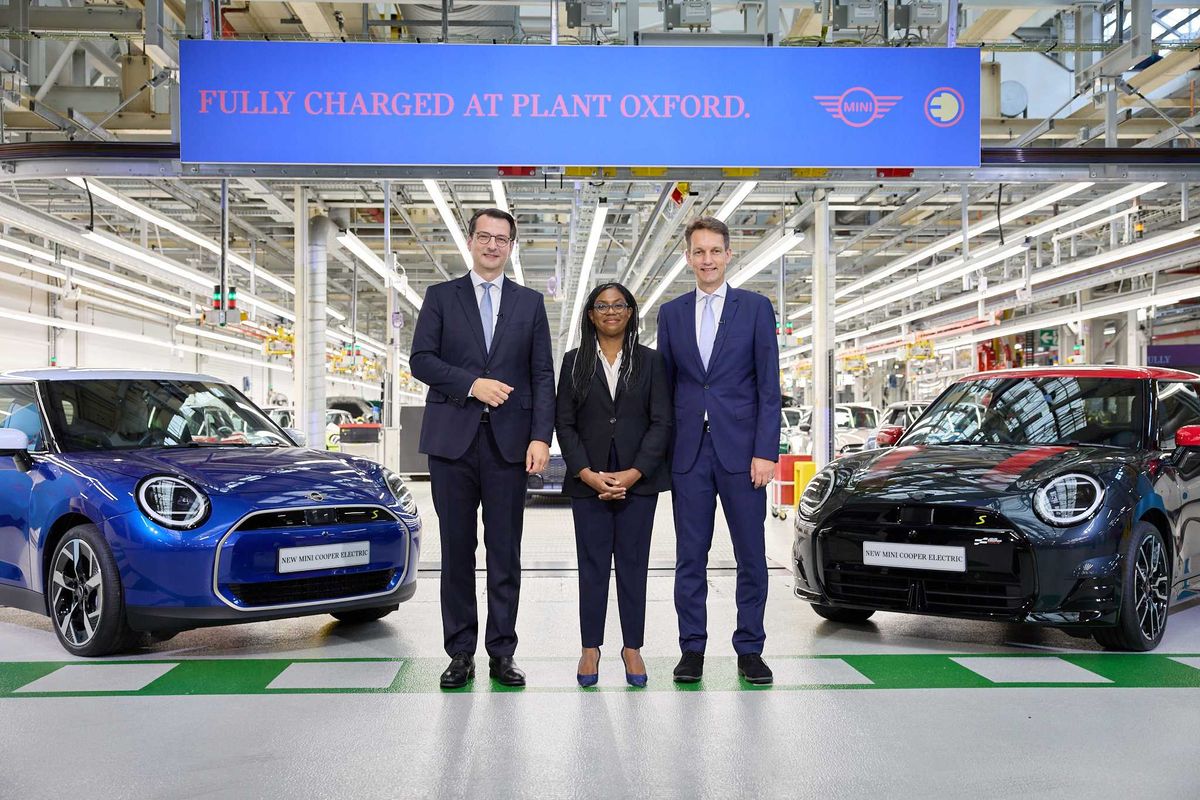“Everyone should pay their fair share”: anger over council’s “capitulation” to BMW

Opposition parties have blasted Oxford City Council's decision to waive a £830,000 community contribution for their upgrade at the East Oxford plant.
Theo Jupp, Liberal Democrat parliamentary candidate for Oxford East calls the decision “laughable”, while independent councillor Damian Haywood attacked it as “catastrophic” and “capitulation”. Green councillor Lucy Pegg said “Big business should not have this power over local councils.”
Oxford City Council made the decision to grant BMW Mini £832,421 Discretionary Exceptional Circumstances Relief (DECR) on the Community Infrastructure Levy (CIL) that would usually be payable to the council on an upgrade to the East Oxford plant. CIL helps local authorities deliver infrastructure to support the development of their area. The principle behind it is that most large scale development has an impact on local infrastructure, and should contribute to the cost of providing or improving it.
The decision was taken at the cabinet meeting last Wednesday, following consideration from the Scrutiny Committee, and legal advice. The case for applying for relief according to minutes of the Cabinet and Scrutiny Committee is that BMW had taken the decision to site their production line for the new electric version of the Mini in Oxford. This would result in job opportunities both at the plant and within the supply chain and was a welcome development for the city. Planning permission for a building for the new line had recently been granted. BMW was also to receive a c. £80m subsidy from central government for the location of production in Oxford. Legal advice confirmed that the application met the conditions for the DECR, and there was no option to partially apply the policy.
Speaking in the Cabinet meeting, Cllr Louise Upton, Cabinet member for Planning and Healthier Communities, pointed out that cities “have to compete to host these factories“ and said they brought jobs to the factories and the supply chains around them. “I don't think we could risk BMW deciding to move this electric Mini line elsewhere,” she said. Dr Upton added that not granting BMW the exemption would have “absolutely catastrophic consequences” if the manufacturer decided to leave.
The Oxford Clarion reached out for comment.
Theo Jupp, Liberal Democrat parliamentary candidate for Oxford East, where the factory is located, said:
I’m very disappointed that Oxford City Council have decided to exempt BMW from paying over £800,000 in community infrastructure charges, money which could have delivered much-needed improvements to roads, schools and health services in South Oxford. It is laughable to suggest that the payment might have been beyond BMW Group’s means when the amount owed represents less than 0.008% of the multinational’s 2023 net profit of £10.4 billion. Our social contract relies on everyone paying in their fair share, individuals, government and businesses alike. The most worrying thing about Oxford City Council’s decision is the precedent it sets: why should BMW Group pay its dues to our communities in future now that it has become clear a pliant Labour council will unquestioningly waive them? I find it hard to believe that a smaller local business would have been treated with the same lenience.
Independent County Councillor Damian Haywood responded:
For Oxford City Council to refuse to levy this on the upcoming development at the BMW mini plant in Cowley is repulsive to many. One can only speculate the reasons why the charge has not been levied but quotes by Cllrs Upton & Brown indicate that if this charge was levied there would be "catastrophic consequences". What is catastrophic is how this council has capitulated to an organisation for such a comparatively piffling amount, compared to the subsidy provided by national government totalling £75m. The £800k which should have been levied is not an inconsiderable amount and put into the bigger pot could provide decent infrastructure this city so desperately needs. Furthermore, BMW would have accounted for the charge when putting together their costs for the development. At a fundamental level infrastructure investment would benefit both residents and businesses within the city, including BMW, and any investment frequently pays for itself within a short period of time. The bottom line is that residents of Oxford have saved BMW £800k where the main shareholder is worth approximately $27.5bn, and they made £25bn profit in 2023.
In a tweet, Lucy Pegg, Green Councillor said:
Big business should not have this power over local councils. £800k is <0.1% of this project's cost and can have no genuine impact on viability, whereas £800k spent on community infrastructure could have a huge impact for local people.
In Cabinet, Cllr Upton highlighted that one of the scrutiny recommendations was looking at other ways BMW could help the community and the council was engaging with BMW on this.
